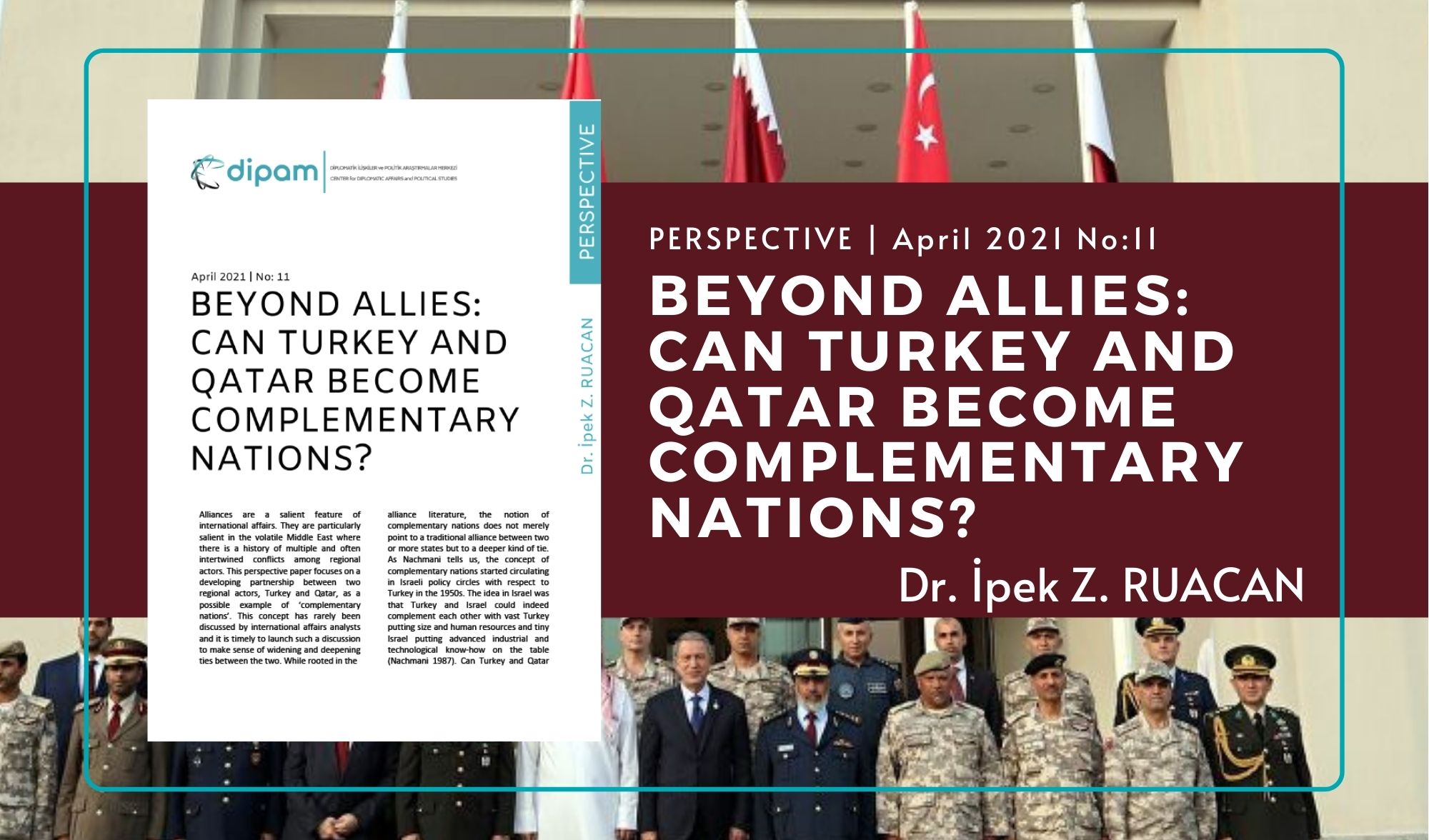Alliances are a salient feature of international affairs. They are particularly salient in the volatile Middle East where there is a history of multiple and often intertwined conflicts among regional actors. This perspective paper focuses on a developing partnership between two regional actors, Turkey and Qatar, as a possible example of ‘complementary nations’. This concept has rarely been discussed by international affairs analysts and it is timely to launch such a discussion to make sense of widening and deepening ties between the two. While rooted in the alliance literature, the notion of complementary nations does not merely point to a traditional alliance between two or more states but to a deeper kind of tie. As Nachmani tells us, the concept of complementary nations started circulating in Israeli policy circles with respect to Turkey in the 1950s. The idea in Israel was that Turkey and Israel could indeed complement each other with vast Turkey putting size and human resources and tiny Israel putting advanced industrial and technological know-how on the table (Nachmani 1987). Can Turkey and Qatar complement each other in a similar fashion? Are Turkey and Qatar the new complementary nations of the Middle East? What is the key difference between alliances and complementary nations? Let me elaborate further below.
The concept of an alliance has been assigned a number of divergent meanings across history. During the 18th century, an alliance implied the pairing of two or more states for mutual security usually for a limited duration. In the 19th century, an alliance referred to a security arrangement regulated by a formal treaty involving a casus foederis or a situation whereby military commitments became operational. Softer definitions have started rising to take account of an increasing number of de facto alliances in the international system that lack formal arrangements but are akin to the ones that are formalized. In short, an alliance can be understood as the pursuit of joint efforts of greater or lesser of formality by two or more states to achieve more security. When seeking more security, states will usually try to influence the distribution of relative power to their advantage or to the disadvantage of their perceived adversaries.




